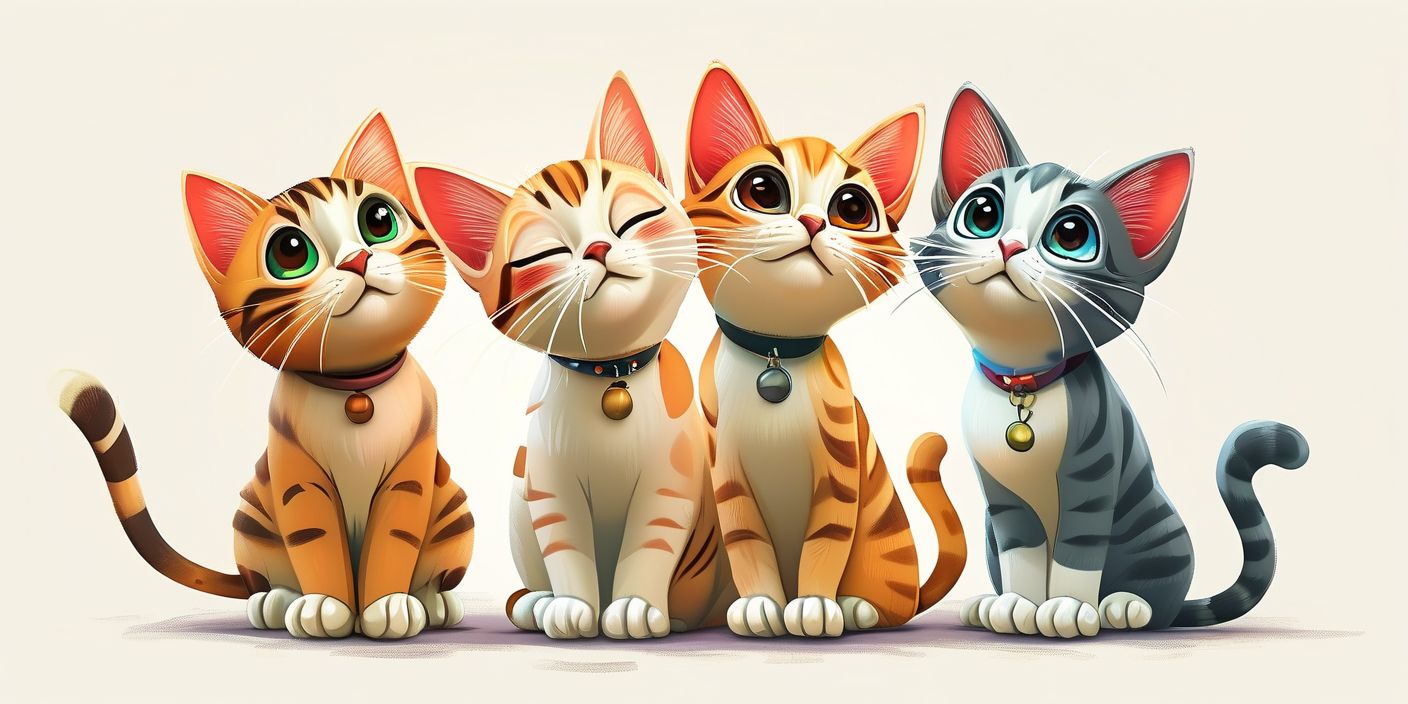Introduction: The Enigmatic Purr
The gentle rumble of a purring kitten is one of the most endearing sounds in the world. It instantly evokes feelings of warmth, contentment, and unconditional love. But is this always the case? While a purring kitten often signifies happiness and comfort, the truth is far more nuanced. A purr can communicate a wide range of emotions and even physical states. This comprehensive guide will delve into the various meanings behind a kitten’s purr, helping you better understand your furry friend’s communication and ensuring their well-being.
Decoding the Purr: Common Reasons for Purring
Contentment and Happiness
The most common reason for a kitten to purr is simple contentment. A warm lap, a delicious meal, or a gentle petting session can all trigger this soothing sound. This type of purr is usually accompanied by relaxed body language: a soft, slow blink, a relaxed posture, and a gentle tail wag. If your kitten is purring while nestled in your arms, chances are they’re feeling incredibly happy and secure.
Self-Soothing and Comfort
Kittens, like human babies, sometimes need to self-soothe. A purr can act as a calming mechanism, helping them regulate their emotions and reduce stress. You might notice your kitten purring when they’re feeling a little anxious, lonely, or insecure. This is particularly common in orphaned or abandoned kittens.
Pain and Distress
This is perhaps the most surprising aspect of kitten purring: it can also be a sign of pain or distress. Injured or sick kittens may purr as a self-soothing mechanism, even when they’re feeling unwell. This is a survival instinct, as purring can release endorphins that have pain-relieving properties. However, if you notice your kitten purring while exhibiting other signs of illness (lethargy, loss of appetite, vomiting, etc.), it’s crucial to consult a veterinarian immediately.
Communication with Mother Cat
Kittens often purr to communicate with their mothers. The sound acts as a signal of their well-being and need for attention. A mother cat will respond to her kitten’s purr, providing comfort and nourishment. This instinctual behavior can continue into adulthood, with cats purring to seek attention and reassurance from their human companions.
Soliciting Attention
A purring kitten might simply be trying to get your attention. They may want to be petted, fed, or played with. If the purr is accompanied by meows, rubbing against your legs, or playful antics, it’s a clear indication that your kitten wants some interaction.
Understanding the Context: Body Language is Key
While the purr itself provides valuable information, it’s crucial to consider the kitten’s overall body language to get a complete picture. A purring kitten with dilated pupils, flattened ears, or a hissing sound is likely feeling threatened or stressed, despite the purr. Conversely, a purring kitten with slow blinks, a relaxed posture, and a soft tail wag is undoubtedly feeling content and secure.
Observing Other Behaviors
Pay attention to other behaviors accompanying the purr. Is your kitten actively seeking attention? Are they eating or sleeping peacefully? Are they exhibiting any signs of illness or discomfort? These additional cues will help you determine the true meaning behind the purr.
Frequency and Intensity of the Purr
Even the characteristics of the purr itself can offer clues. A high-pitched, rapid purr might indicate excitement or anxiety, while a low-pitched, slow purr suggests contentment. The volume and duration of the purr can also provide valuable insights.
When to Worry: Purring and Potential Health Issues
While purring is often a positive sign, it’s crucial to be aware of situations where it might indicate an underlying health problem. If your kitten is purring excessively, especially when they seem lethargic, have a decreased appetite, or are exhibiting other unusual symptoms, it’s essential to seek veterinary attention. A seemingly innocent purr could be masking a more serious issue.
Recognizing Signs of Illness
Look out for these additional signs that could accompany a purring kitten and signal a health problem: vomiting, diarrhea, changes in urination or defecation habits, weight loss, excessive grooming, lethargy, difficulty breathing, or changes in behavior.
Myths and Misconceptions about Kitten Purring
There are several myths surrounding cat and kitten purring. Let’s debunk some of the most common ones.
Myth 1: All purring means happiness.
As we’ve discussed, this is false. Purring can be a sign of pain, distress, or self-soothing.
Myth 2: Only happy cats purr.
Again, this is inaccurate. Sick or injured cats may purr as a coping mechanism.
Myth 3: You can always tell a cat’s emotional state from its purr.
The purr is just one piece of the puzzle. Body language is equally important in understanding your cat’s true feelings.
Final Thoughts: Understanding Your Kitten’s Communication
The purr of a kitten is a complex and fascinating phenomenon. While it often signifies contentment and happiness, it can also communicate a range of other emotions and physical states. By paying close attention to your kitten’s body language and overall behavior, you can learn to decipher the meaning behind their purrs and ensure their well-being. Remember, a regular veterinary check-up is crucial to maintain your kitten’s health and address any potential problems early on.

